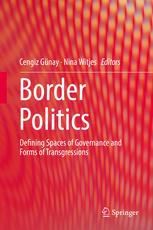

Most ebook files are in PDF format, so you can easily read them using various software such as Foxit Reader or directly on the Google Chrome browser.
Some ebook files are released by publishers in other formats such as .awz, .mobi, .epub, .fb2, etc. You may need to install specific software to read these formats on mobile/PC, such as Calibre.
Please read the tutorial at this link: https://ebookbell.com/faq
We offer FREE conversion to the popular formats you request; however, this may take some time. Therefore, right after payment, please email us, and we will try to provide the service as quickly as possible.
For some exceptional file formats or broken links (if any), please refrain from opening any disputes. Instead, email us first, and we will try to assist within a maximum of 6 hours.
EbookBell Team

5.0
60 reviewsIn the light of mass migration, the rise of nationalism and the resurgence of global terrorism, this timely volume brings the debate on border protection, security and control to the centre stage of international relations research. Rather than analysing borders as mere lines of territorial demarcation in a geopolitical sense, it sheds new light on their changing role in defining and negotiating identity, authority, security, and social and economic differences. Bringing together innovative and interdisciplinary perspectives, the book examines the nexus of authority, society, technology and culture, while also providing in-depth analyses of current international conflicts. Regional case studies comprise the Ukraine crisis, Nagorno-Karabakh, the emergence of new territorial entities such as ISIS, and maritime disputes in the South China Sea, as well as the contestation and re-construction of borders in the context of transnational movements. Bringing together theoretical, empirical and conceptual contributions by international scholars, this Yearbook of the Austrian Institute for International Affairs offers novel perspectives on hotly debated issues in contemporary politics, and will be of interest to researchers, graduate students and political decision makers alike.